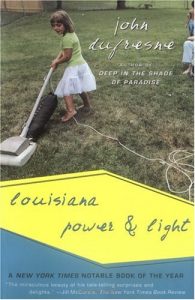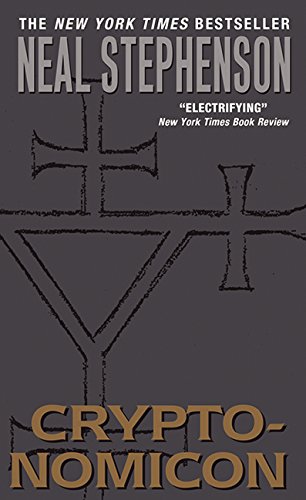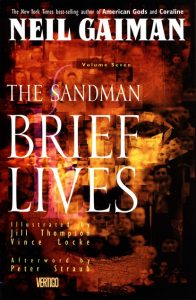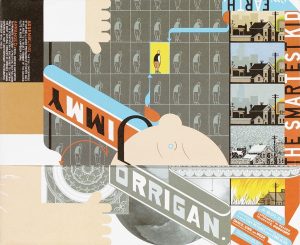A couple-few years ago, I saw the musical performance of Wicked in Dallas. It was a little heavy-handed with its pro-PETA message, but entertaining for all of that, plus at the time we were under a tornado warning (no shit) and the power actually went out briefly mid-show. The chick who was playing Elphaba? Good lungs, as she was able to joke at the audience until the power came back up, and everyone could hear her. So you see.
Sometime not long afterwards, I picked up a copy of the book that inspired all that, also named Wicked. Then, as is often the case, some years later I have read it, and my reaction is extremely mixed. On the one hand, I’m a little surprised to have liked it, even though I couldn’t say why. I mean, I liked its derivative work well enough, right? But still, I went into it expecting not so much, but with enough interest to understand why all the fuss. Instead, I got a pretty neatly put together series of five stories that probably could have been about five different people, even though they are not. The styles differ wildly (my favorite was the second part, at school, which reminded me constantly of Jane Austen) and the portrayals of our main character differ as well, due mostly to extensive passage of time between each section. I wouldn’t want to see it in a lot of books, but I kind of approve of Maguire’s choice to disregard continuity, perhaps in an attempt to give his audience more insight into the central point he is making about passing judgment without very many facts?
Which, right, I suppose I shouldn’t ought to assume everyone knows about the book. It is, basically, the other side of the story of the Wizard of Oz, in which our wicked Witch, Elphaba, went to college with Glinda, joined political resistance against a tyrannical usurper who styled himself the Wizard of Oz, and was eventually brought low by one Dorothy who frankly had no idea what was going on around her and was everyone’s pawn at every turn. And like I say, it’s a pretty entertaining story, with a lot of interesting character voices and structural choices. So why am I ambivalent? Because, at some point in the story, after her political agitations but before the arrival of her destined nemesis, Elphaba starts to reflect upon her legacy and quickly to fixate upon it, which gives Maguire an excuse to start dealing with everything through the prism of Literature, and Theme, and Essay Questions. And if there’s one thing I cannot stand, it is the 20th Century tendency toward intentional art. People should ought to create what they want to see, not what they believe other people will consider important. And that’s the worst part: this book is something I wanted to see. It just lost its way, somewhere along that yellow brick road.
 I’m in a book club. Well, that’s not entirely accurate. As with all book clubs above a certain mayfly-like age, it has died an inglorious death, somewhere in the middle of the first book.[1] But I can say with pride that I did not contribute to that death. Yay! The book selected was one of those modern fictions in the sense that it was published since the middle of the last century and doesn’t have a particular sub-genre, but not in the sense that it was designed solely to fill me with rage. Which does make it rather a stand-out, and I’m glad someone put me onto it!
I’m in a book club. Well, that’s not entirely accurate. As with all book clubs above a certain mayfly-like age, it has died an inglorious death, somewhere in the middle of the first book.[1] But I can say with pride that I did not contribute to that death. Yay! The book selected was one of those modern fictions in the sense that it was published since the middle of the last century and doesn’t have a particular sub-genre, but not in the sense that it was designed solely to fill me with rage. Which does make it rather a stand-out, and I’m glad someone put me onto it! This review is somewhere between days and weeks late; I just haven’t simultaneously felt like writing anything and had time to. I’m not entirely clear on whether that confluence of events has in fact occurred now, but I pretty much have to get over the hump, right? The sad part is, I absolutely adored
This review is somewhere between days and weeks late; I just haven’t simultaneously felt like writing anything and had time to. I’m not entirely clear on whether that confluence of events has in fact occurred now, but I pretty much have to get over the hump, right? The sad part is, I absolutely adored  I realized in the midst of all the graphic novels I’ve been reading, I had completely neglected my Sandman collecting. So I immediately ordered
I realized in the midst of all the graphic novels I’ve been reading, I had completely neglected my Sandman collecting. So I immediately ordered  I think what keeps me from reviewing this graphic novel is the fear of being sucked back into the depression of it all over again. So I sit here staring at the blank screen that is in one incarnation or another over 24 hours old now. Which I’ll have you know isn’t all that uplifting itself, even by comparison. Therefore, I’m going to buckle down and power through it.
I think what keeps me from reviewing this graphic novel is the fear of being sucked back into the depression of it all over again. So I sit here staring at the blank screen that is in one incarnation or another over 24 hours old now. Which I’ll have you know isn’t all that uplifting itself, even by comparison. Therefore, I’m going to buckle down and power through it.